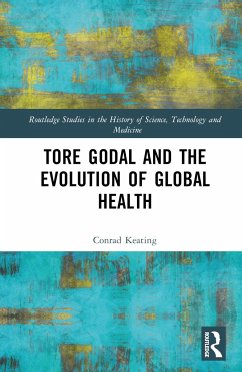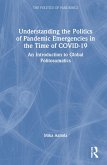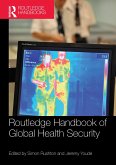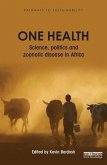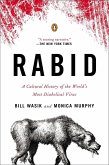This book is an interconnected history of the evolution of global health in the decades before 2019, told through the prism of six decisive moments in which individuals from the World Health Organization (WHO), philanthropic foundations, academia and bilateral agencies came together to shape the world.
These critical junctures are accessed via the life and work of Norwegian immunologist Tore Godal, one of the most influential health physicians of all time. Godal's career over the past 50 years offers a window into the profound events that have shaped the health and well-being of millions across the globe, including the first free donation of a drug for the treatment of river blindness; the entry of the Bill and Melinda Gates Foundation into the global health arena with a $750 million start-up grant for GAVI, the Global Alliance for Vaccines and Immunization; the 50% reduction in under-five mortality rates this century; the emergence of insecticide bed nets as the cornerstone of WHO malaria control; the rise of maternal and child health on the global political agenda; and the connection between Ebola and the creation of the Coalition for Epidemic Preparedness Innovations (CEPI) in 2017.
Exploring the ways in which the trajectory of global health has interwoven with the rich life and legacy of Godal, this book is a crucial resource for any reader interested in global health.
These critical junctures are accessed via the life and work of Norwegian immunologist Tore Godal, one of the most influential health physicians of all time. Godal's career over the past 50 years offers a window into the profound events that have shaped the health and well-being of millions across the globe, including the first free donation of a drug for the treatment of river blindness; the entry of the Bill and Melinda Gates Foundation into the global health arena with a $750 million start-up grant for GAVI, the Global Alliance for Vaccines and Immunization; the 50% reduction in under-five mortality rates this century; the emergence of insecticide bed nets as the cornerstone of WHO malaria control; the rise of maternal and child health on the global political agenda; and the connection between Ebola and the creation of the Coalition for Epidemic Preparedness Innovations (CEPI) in 2017.
Exploring the ways in which the trajectory of global health has interwoven with the rich life and legacy of Godal, this book is a crucial resource for any reader interested in global health.
"...how does a medical historian tell the story of a man of science and healing who-both publicly and behind closed doors-brokered unprecedented international partnerships and oversaw their financing and implementation while remaining deeply connected to on-the-ground stakeholders? As in several of his previous books, the author of Tore Godal and the Evolution of Global Health accomplishes thisextensive reporting and eye-witness details, memories, and quotes which yield a rich, human portrait as well as some unique challenges Godal faced both in boardrooms and "end of the road" settings where people's lives literally hung in the balance. As a result, the 200-page book Keating recently added to the Routledge Series in the History of Science, technology and Medicine is a richly-layered narrative of modern global health history which deserves to be read by many people, both in academia and beyond. In short, not only does its engaging, well-paced text depict an insightful scientist who was both principled and politically astute, it also summarizes 40 years of policy and progress and, in doing so, presents important lessons for future generations."
CLAIRE PANOSIAN DUNAVAN, UCLA Division of Infectious Diseases, Am. J. Trop. Med. Hyg., 00(00), 2023, pp. 1-4 doi:10.4269/ajtmh.23-0853
CLAIRE PANOSIAN DUNAVAN, UCLA Division of Infectious Diseases, Am. J. Trop. Med. Hyg., 00(00), 2023, pp. 1-4 doi:10.4269/ajtmh.23-0853

